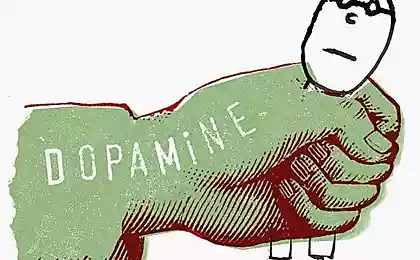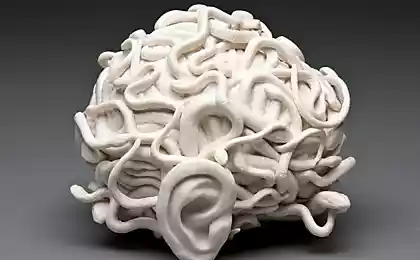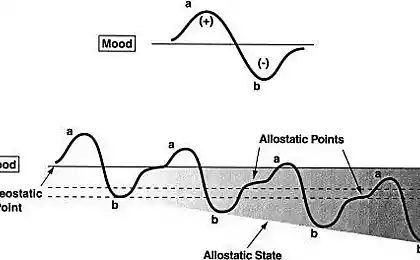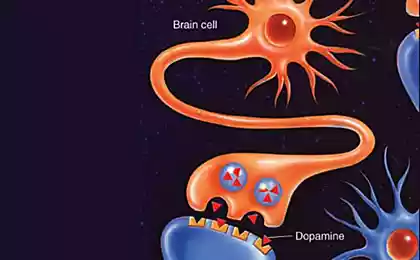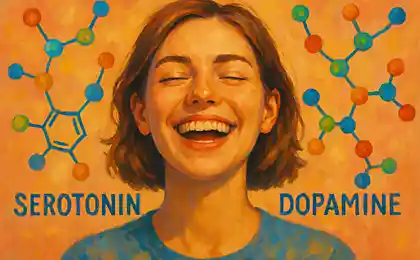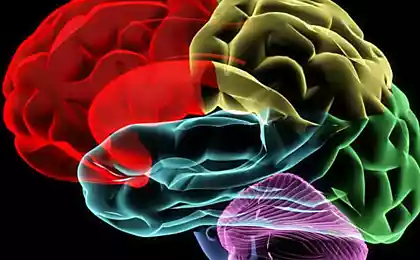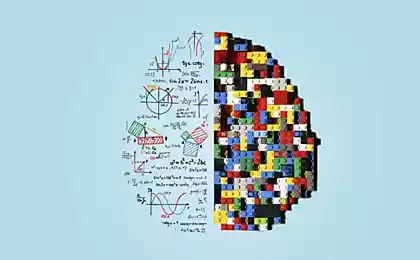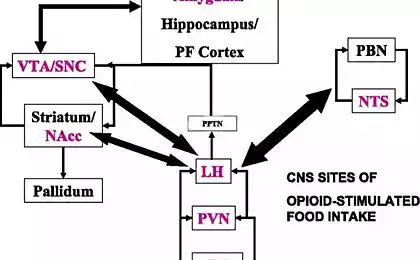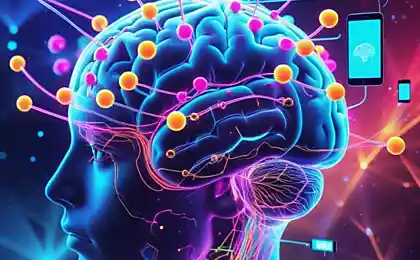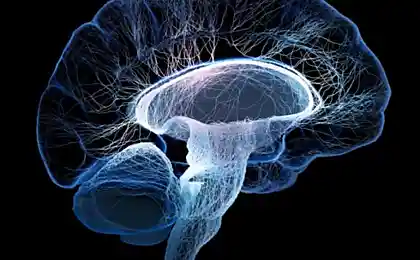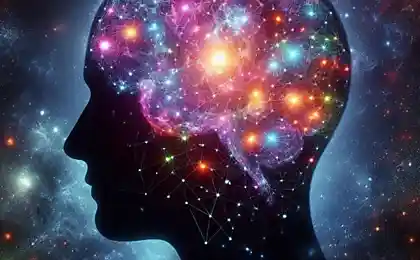795
Dopamine drug: the whole truth about positive thinking!
One of the most popular myths in modern culture is the myth of positive thinking and constant hard focus on the target. They say, the more You think about goals, the more likely it will achieve. Alas, unfortunately, very often it is not. Moreover, this constant thinking can seriously undermine your health and even cause breakdown. It's all in the dopamine, it will be discussed.
Reflections on the reward cause a rise of dopamine.
Interestingly, according to the Institute of neurosciences, mental health and addictions (Canada) activation of the dopamine system precedes the very behavior that brings satisfaction, pleasure or reward. The amount of dopamine depends on specific results, behavior or activity and feelings of satisfaction. Moreover, even an addict, thinking about the dose already increases your dopamine levels before injection.
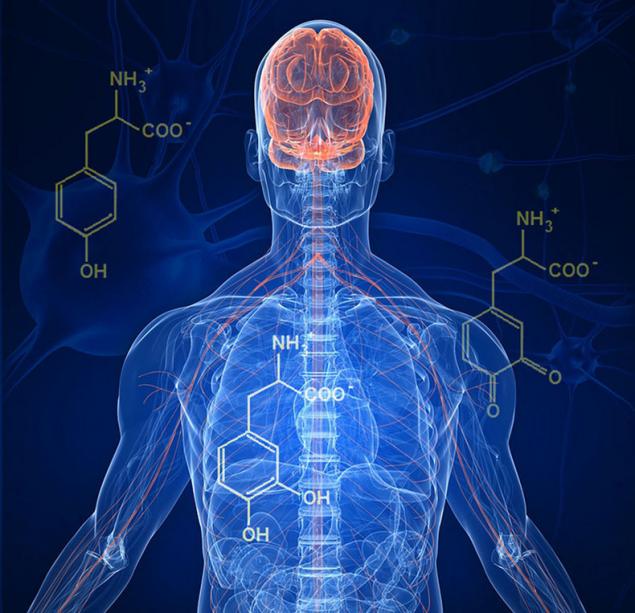
If the behavior brings satisfaction and expectations, the brain potentiates the corresponding amounts of dopamine for the future, making this expectation, as well as such activities enjoyable. If the behavior has not brought the desired results, the levels of dopamine under such activities in the future will be low. People lose interest and motivation before the fact that not yielded the expected results.
Furthermore, dopamine facilitates the processes of cognition, and the brain under the novelty and pleasure seeking. In other words, the dopamine system provides us with the desire to get what we are looking at natural indicators and will bring satisfaction in the form of pleasure, happiness, or bliss.
Dopamine helps to go further in their interests and creates a sense of reward for completing the goals. But dopamine is a big trouble – it will improve mood, even lying on the couch and fantasizing what achievements are coming tomorrow, and therefore can create the illusion of success. That is, nothing positive has not happened yet, but the brain has already accepted the award.
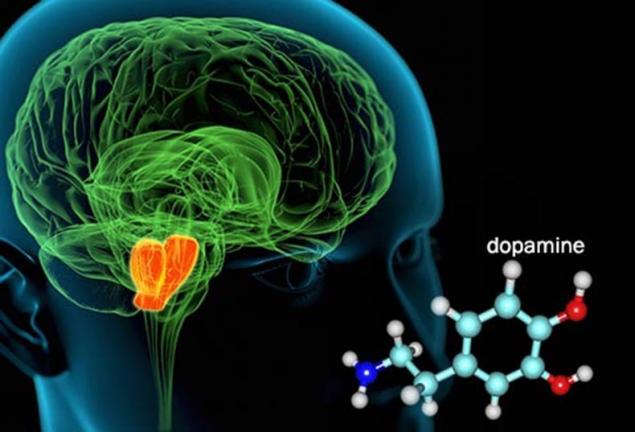
Self-stimulation of thoughts and fantasies as a dopamine drug.
Therefore, thinking about nice, we are already making dopamine. But it's about the release and there's nothing he reinforces, as the actions were not. In fact, it is the same empty stimulation, like biting, drugs, cigarettes and Masturbation. In the long term, the stimulation of pleasant thoughts will lead to an excess of dopamine and a reduction in the sensitivity of dopamine receptors. How much dopamine is produced in humans from specific thoughts or memories depends on how he considers this idea important and pleasant (or unpleasant), so dopamine helps us to make decisions and affect motivation.
A common idea affects the production of neurotransmitters "system of incentives", and may at some time cause an increase or decrease in the flow of dopamine in the brain in humans and animals. This is because what is memorized not only the event itself but also the associated pleasure/displeasure. For example, we not only can remember some party, but the pleasure or displeasure which we got there.
For example, in laboratory mice the production of dopamine abruptly increased at a prearranged signal, informing about the anticipation of rewards. The males of laboratory mice increase the level of dopamine was started at the sight of females, ie before copulation. In laboratory chimpanzees develop dopamine was growing at the sight of food, that is, to the power supply. In humans, dopamine also increases during memories about food, sex, etc. how much dopamine is produced in humans from specific thoughts or memories depends on how he considers this idea important and pleasant (or unpleasant), so dopamine helps us to make decisions and affect motivation.
Of course, some time after the end of "important and interesting ideas" dopamine levels will return to normal, but it should also spend some time, especially if there was a powerful release of dopamine in the synapses, and the "cleaners" (proteins MAO and reuptake) is overloaded.
The vicious circle of drug "fantasy" or "smoothwave"
As mentioned above, the flow of dopamine may increase already from remembering the important and interesting event. That is, the mere thinking about an interesting event or action may already be a small encouragement. We all love to dream of pleasant and interesting things to cheer yourself up. However, some people abuse this method, deliberately stressing their "reward system" and artificially stimulating interesting dreams and pyxidea again and again, since it naturally produces the good mood neurotransmitters (dopamine and serotonin), losing self-control. This is similar to drug addiction, because almost all drugs, directly or indirectly, focused on the "reward system" of the brain and its structure saturate dopamine.
Happens about the following:
1) People several times in a row for a long time thinking about important or interesting the dream Toolbox-the idea, the level of dopamine in the synapses is increased, mood is lifted and already the idea is starting to like him. This is called in psychology "switching goals in the process."
Ie the man like not even objective thought, and the process of reflection on that goal. Consciously or unconsciously, people returned to these reflections not for the solution of the problem, and in order to relive the process for the sake of pleasure (i.e., the portions of dopamine). Gradually thinking about the promotion itself becomes a little encouragement, and the desire to dream more and more associated with previous pleasure, and so the maniacal idea is becoming increasingly important and desirable (i.e., is associated in the memory with increasingly high levels of dopamine).
2) removal of dopamine from the synaptic space to spend some time — if people will switch to other thoughts (less interesting), then gradually, the dopamine levels will return to normal. If the same person frequently and continuously continues to think about his fixaleak and dreams for hours in a row for several days, the dopamine continues to build up in the synaptic space, and the cleaning process of the synapse might not cope with its task.
Cleaners of dopamine (i.e., proteins MAO and reverse capture) is simply overloaded, and the synapses are flooded with dopamine, as with drug use. It's like a school task about the pool with 2 tubes: if the pool flows more water than can flow, it will gradually overflow. So here: if the synapse gets more dopamine than to retire from it, then gradually the synapses overflowing with dopamine.
3) Thus, is samostimulyatsii — the more one relishes your valuable idea, the more he gets pleasure (i.e., dopamine) from the process, and the more memory occurs Association with pleasure. Gradually, he allocated an increased amount of dopamine at the mere mention of super ideas, and increasingly he wants to return to its deliberation. Spoiled dopamine, the brain doesn't want to switch to something less interesting, and after the suppression of one manic obsessive thoughts begins scrolls other, not less interesting, but necessary things are not done.
Obsession with fixaleak gives man nor to think about anything else, it scatters his focus, impairs memory, interferes with to focus on something necessary, but less interesting. Because of this, the schizophrenic, like the addict, the problem starts in real life, he could lose his job, family, friends, is why reality becomes even more dull, and him more want to go into a dream world for a breath of dopamine.
Everything else begins to lose value, and the natural pleasures (eating, sex, socializing with others) is not considered as adequate remuneration. With the usual natural pleasure becomes associated rather unpleasant memories (loss of social status, rejection by society, impotence, loss of taste of food, etc.). Gradually scroll of interesting thoughts becomes not a pleasure but a way to somehow escape from problems and to cheer yourself up.
It's just as increase dopamine with drugs — first addict is really a pleasure, but then he can't exist without "doping" drugs destroy his life, reality becomes even more grim, and drugs are no longer fun and the only way to somehow maintain the mood. In addition, in the long term "reward system" gradually adapts to the excessive flow of dopamine and reduces the number of active receptors in order to protect the cells from overvoltage, and entertainment are not still fun.
4) If the person continues long enough and continuously study samostimulyatsii, then it is overloaded with dopamine to the brain occurs approximately the same as in an overloaded hard drugs mind of the addict. Of course the failure of the "system of incentives". The brain becomes hard to decide what is good and what is bad. Feeling and Association become brighter and more interesting than usual. Almost any first came the thought seems correct and interesting. Voices from the outside world and voices recorded in the memory become louder and gain tone. Even his own thoughts that the person usually conducts himself with a quiet inner voice suddenly become loud and scary. The brain becomes harder to switch the impression coming from the real world, because suddenly all has become so important and interesting. It harder it becomes to stop the thoughts the counter.
Where is the line between normality and pathology?
However, we should not think that positive thinking increases the dopamine is always bad and it is necessary to completely abandon the positive thoughts — such an understanding of this topic will be very wrong. Positive thinking is absolutely necessary from the point of view of "dopamine theory" for the right motivation, good mood and mental health, but do not abuse them and deliberately to wind your dopamine to psychosis lasting multiple scrolling maniakalnah the super-idea and dreams.
Healthy thinking and self-stimulation fantasy.
Do not confuse two different concepts:
1) persistent manic thoughts called repeatedly and continuously for fun
2) a good positive thought is not called repeatedly
3) healthy thoughts lead to actions or decisions (and not just "stops are thought of by")
4) a healthy thought arises because of the existing discomfort (reduced dopamine temporarily, need to fix)
5) a healthy mind is to expand your opportunities, not to remove the existing discomfort
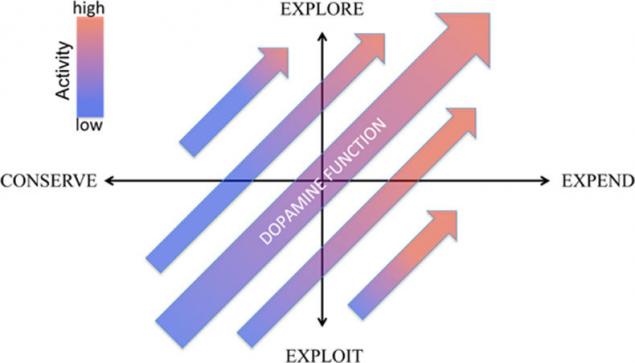
There is a fairly simple method of filtering: if a person feels that cause one and the same idea many times in a row, then he needs to stop to think: "why am I doing this?" If he feels that is causing this thought not for the solution of the problem, but the addict for the sake of receiving pleasure from the process, then he should stop while dopamine did not scale above the norm.
In addition, in a healthy person the process of "scroll of thoughts" is usually productive, that is, the result is something useful: a new car, the report superiors, or plan of action. When a healthy person feels that his thought process does not bring any practical results, he stops to think about it.
There is, as they say in engineering, “positive feedback” — the more often a person scrolls through their fixide, the more there is of the associations with pleasure, the more he wants it back
Wrote the neuroscientist David Self in the journal Nature (the most basic and most prestigious scientific journal of USA): "Dopamine is egg and chicken... Dopamine acts as a reward for behaviour that precedes its increase, and, therefore, increase the desire to return to that behavior... Like a rat chasing after his tail, and the addict moves in a vicious circle of desires and rewards, controlled by dopamine signals."
To break the vicious circle of self-stimulation healthy person can be a distraction to other thoughts or conscious refusal from further scrolling fixide with stopping “anti-thoughts” (e.g., “I have more important things to do” or “ I'm just wasting time, further thinking this idea does not bring practical results”). That is, to deal with thoughts it is necessary, first and foremost, with the help of other thoughts is the most natural, effective, natural, safe and cheap way.
Thus people will avoid turning interesting ideas into manic fixide. After all, in the beginning, an interesting idea though is for a healthy person is important, but it has not yet been associated with the high level of dopamine is associated with any delusional beliefs of schizophrenics, so it is easy enough to interrupt other thoughts or strong-willed effort.
It is important to remember that a healthy person normally self-stimulation stuff never reaches the psychosis, for the following reasons:
1) do not do Healthy-stimulation so much, often and continuously as schizophrenics, so during the time that a healthy person is distracted by other less interesting thoughts, their synapses are cleaned MAO and the system of the reverse takeover, there is no accumulation of dopamine in synapses.
2) Healthy, usually in time to stop the "scrolling" interesting thoughts, counter-arguments (for example: "I've thought about it; further considering this idea only wasting my time; I have a lot of other things; doing 'manilovsky' I look stupid in the eyes of others; if I often do I was fired from work, will conflict with relatives, friends will be considered, abnormal, etc."
3) Have healthy memories of their interesting ideas is not associated with such high levels of dopamine, as in schizophrenics, because they have not sformirovalis Association with the previous pleasure. Schizophrenics and drug addicts the desire for repetition arises because of the memories of the previous choice (i.e. splash of dopamine).
4) Healthy do not spend the sleep time thinking of interesting ideas and allow your brain to sleep well and relax.
5) Healthy people get your dopamine more or less evenly in small portions during the day, enjoying life, communicating with people, looking with interest the world around, enjoying nature, weather, Hobbies, etc. And the schizophrenic flow of dopamine is uneven – everything is dark and bad, then a powerful surge of dopamine from manic thoughts, then bad again.
6) can Often be more reasonable to opt out of the solution, discard the unrealizable desire to reduce the queries, to try more comfortably arranged with what are, or to find something to substitute, especially in the case when suffering from failure much less than the effort needed to solve the problem.
For example, for a billionaire it would be quite normal to want to immediately get a million dollars, and the schizophrenic who does not have sufficient funds, connections, and education, such a pipe pyxidea likely only bring suffering, so it will be better to begin to set a more realistic goal. Even bill gates once said in an interview that in the beginning of his career, he never hoped that I would become a billionaire, and was just trying to make some money first as a student and luck then she suddenly came to him.
Sometimes the person waiting for something for too long, delaying the hard decision, suffers from the problem, and then begins to escape from depression by turning in your brain good thoughts, to somehow relax and improve your mood (i.e. dopamine).
For example, a girl who for a long time can't meet with your beloved, begins to imagine different scenarios of a love relationship with him, creates for himself a fictional ideal image of a loved one, talking to this imaginary character, more falls in love with the ideal image which often does not correspond to an actual person, etc. Such pleasant thoughts to help her temporarily escape from problems or to procrastinate, but if it is too this carried away, the dopamine may scale above the norm, and the negative phase will pass in the productive phase of schizophrenia.
Not share his plans.
In fact, when you share with others your fantastic plans, you simply spend for nothing the dopamine savor something that has not yet reached. This could potentially lead to a drop in motivation. The answer to the main question of this article is quite simple:The man who insists on its plans and objectives, quickly loses interest in them! When you talk about their purpose, besides, if she's ambitious, people start to congratulate you with this, thereby turning your goal into a social reality. In this case, the mind just gives in to the trick, and then, as you have already experienced the satisfaction, the incentive to achieving the goal of reduced!
A few years ago the experiment was conducted: Specifically selected a few dozen people, and then they handed out leaflets, which they had to write their goals. After that all people were divided into two groups. People from the first group talked about their goals, people from the second group kept them to yourself! The whole experiment was given 45 minutes. The results were amazing! People from the second group spent 45 minutes and at the end of the experiment, to achieve the goal they want to achieve a lot! People from the first group spent half of the set time, arguing that felt much closer to goal!
So, if all this is true, then how to do? You can hold it in and clearly go to the target and when it gets to experience true euphoria!
But if you still want to talk about the plans, you can do it so as not to obtain this satisfaction, for example:"I need to achieve this, so kick me more!"
To discuss plans, experiencing some discomfort, not pleasure! published
Author: Andrey Blueskin
P. S. And remember, only by changing their consumption — together we change the world! ©
Join us in Facebook , Vkontakte, Odnoklassniki
Source: www.beloveshkin.com/2015/11/pozitivnoe-myshlenie-fantazii-i-dofamin.html#more
Reflections on the reward cause a rise of dopamine.
Interestingly, according to the Institute of neurosciences, mental health and addictions (Canada) activation of the dopamine system precedes the very behavior that brings satisfaction, pleasure or reward. The amount of dopamine depends on specific results, behavior or activity and feelings of satisfaction. Moreover, even an addict, thinking about the dose already increases your dopamine levels before injection.

If the behavior brings satisfaction and expectations, the brain potentiates the corresponding amounts of dopamine for the future, making this expectation, as well as such activities enjoyable. If the behavior has not brought the desired results, the levels of dopamine under such activities in the future will be low. People lose interest and motivation before the fact that not yielded the expected results.
Furthermore, dopamine facilitates the processes of cognition, and the brain under the novelty and pleasure seeking. In other words, the dopamine system provides us with the desire to get what we are looking at natural indicators and will bring satisfaction in the form of pleasure, happiness, or bliss.
Dopamine helps to go further in their interests and creates a sense of reward for completing the goals. But dopamine is a big trouble – it will improve mood, even lying on the couch and fantasizing what achievements are coming tomorrow, and therefore can create the illusion of success. That is, nothing positive has not happened yet, but the brain has already accepted the award.

Self-stimulation of thoughts and fantasies as a dopamine drug.
Therefore, thinking about nice, we are already making dopamine. But it's about the release and there's nothing he reinforces, as the actions were not. In fact, it is the same empty stimulation, like biting, drugs, cigarettes and Masturbation. In the long term, the stimulation of pleasant thoughts will lead to an excess of dopamine and a reduction in the sensitivity of dopamine receptors. How much dopamine is produced in humans from specific thoughts or memories depends on how he considers this idea important and pleasant (or unpleasant), so dopamine helps us to make decisions and affect motivation.
A common idea affects the production of neurotransmitters "system of incentives", and may at some time cause an increase or decrease in the flow of dopamine in the brain in humans and animals. This is because what is memorized not only the event itself but also the associated pleasure/displeasure. For example, we not only can remember some party, but the pleasure or displeasure which we got there.
For example, in laboratory mice the production of dopamine abruptly increased at a prearranged signal, informing about the anticipation of rewards. The males of laboratory mice increase the level of dopamine was started at the sight of females, ie before copulation. In laboratory chimpanzees develop dopamine was growing at the sight of food, that is, to the power supply. In humans, dopamine also increases during memories about food, sex, etc. how much dopamine is produced in humans from specific thoughts or memories depends on how he considers this idea important and pleasant (or unpleasant), so dopamine helps us to make decisions and affect motivation.
Of course, some time after the end of "important and interesting ideas" dopamine levels will return to normal, but it should also spend some time, especially if there was a powerful release of dopamine in the synapses, and the "cleaners" (proteins MAO and reuptake) is overloaded.
The vicious circle of drug "fantasy" or "smoothwave"
As mentioned above, the flow of dopamine may increase already from remembering the important and interesting event. That is, the mere thinking about an interesting event or action may already be a small encouragement. We all love to dream of pleasant and interesting things to cheer yourself up. However, some people abuse this method, deliberately stressing their "reward system" and artificially stimulating interesting dreams and pyxidea again and again, since it naturally produces the good mood neurotransmitters (dopamine and serotonin), losing self-control. This is similar to drug addiction, because almost all drugs, directly or indirectly, focused on the "reward system" of the brain and its structure saturate dopamine.
Happens about the following:
1) People several times in a row for a long time thinking about important or interesting the dream Toolbox-the idea, the level of dopamine in the synapses is increased, mood is lifted and already the idea is starting to like him. This is called in psychology "switching goals in the process."
Ie the man like not even objective thought, and the process of reflection on that goal. Consciously or unconsciously, people returned to these reflections not for the solution of the problem, and in order to relive the process for the sake of pleasure (i.e., the portions of dopamine). Gradually thinking about the promotion itself becomes a little encouragement, and the desire to dream more and more associated with previous pleasure, and so the maniacal idea is becoming increasingly important and desirable (i.e., is associated in the memory with increasingly high levels of dopamine).
2) removal of dopamine from the synaptic space to spend some time — if people will switch to other thoughts (less interesting), then gradually, the dopamine levels will return to normal. If the same person frequently and continuously continues to think about his fixaleak and dreams for hours in a row for several days, the dopamine continues to build up in the synaptic space, and the cleaning process of the synapse might not cope with its task.
Cleaners of dopamine (i.e., proteins MAO and reverse capture) is simply overloaded, and the synapses are flooded with dopamine, as with drug use. It's like a school task about the pool with 2 tubes: if the pool flows more water than can flow, it will gradually overflow. So here: if the synapse gets more dopamine than to retire from it, then gradually the synapses overflowing with dopamine.
3) Thus, is samostimulyatsii — the more one relishes your valuable idea, the more he gets pleasure (i.e., dopamine) from the process, and the more memory occurs Association with pleasure. Gradually, he allocated an increased amount of dopamine at the mere mention of super ideas, and increasingly he wants to return to its deliberation. Spoiled dopamine, the brain doesn't want to switch to something less interesting, and after the suppression of one manic obsessive thoughts begins scrolls other, not less interesting, but necessary things are not done.
Obsession with fixaleak gives man nor to think about anything else, it scatters his focus, impairs memory, interferes with to focus on something necessary, but less interesting. Because of this, the schizophrenic, like the addict, the problem starts in real life, he could lose his job, family, friends, is why reality becomes even more dull, and him more want to go into a dream world for a breath of dopamine.
Everything else begins to lose value, and the natural pleasures (eating, sex, socializing with others) is not considered as adequate remuneration. With the usual natural pleasure becomes associated rather unpleasant memories (loss of social status, rejection by society, impotence, loss of taste of food, etc.). Gradually scroll of interesting thoughts becomes not a pleasure but a way to somehow escape from problems and to cheer yourself up.
It's just as increase dopamine with drugs — first addict is really a pleasure, but then he can't exist without "doping" drugs destroy his life, reality becomes even more grim, and drugs are no longer fun and the only way to somehow maintain the mood. In addition, in the long term "reward system" gradually adapts to the excessive flow of dopamine and reduces the number of active receptors in order to protect the cells from overvoltage, and entertainment are not still fun.
4) If the person continues long enough and continuously study samostimulyatsii, then it is overloaded with dopamine to the brain occurs approximately the same as in an overloaded hard drugs mind of the addict. Of course the failure of the "system of incentives". The brain becomes hard to decide what is good and what is bad. Feeling and Association become brighter and more interesting than usual. Almost any first came the thought seems correct and interesting. Voices from the outside world and voices recorded in the memory become louder and gain tone. Even his own thoughts that the person usually conducts himself with a quiet inner voice suddenly become loud and scary. The brain becomes harder to switch the impression coming from the real world, because suddenly all has become so important and interesting. It harder it becomes to stop the thoughts the counter.
Where is the line between normality and pathology?
However, we should not think that positive thinking increases the dopamine is always bad and it is necessary to completely abandon the positive thoughts — such an understanding of this topic will be very wrong. Positive thinking is absolutely necessary from the point of view of "dopamine theory" for the right motivation, good mood and mental health, but do not abuse them and deliberately to wind your dopamine to psychosis lasting multiple scrolling maniakalnah the super-idea and dreams.
Healthy thinking and self-stimulation fantasy.
Do not confuse two different concepts:
1) persistent manic thoughts called repeatedly and continuously for fun
2) a good positive thought is not called repeatedly
3) healthy thoughts lead to actions or decisions (and not just "stops are thought of by")
4) a healthy thought arises because of the existing discomfort (reduced dopamine temporarily, need to fix)
5) a healthy mind is to expand your opportunities, not to remove the existing discomfort

There is a fairly simple method of filtering: if a person feels that cause one and the same idea many times in a row, then he needs to stop to think: "why am I doing this?" If he feels that is causing this thought not for the solution of the problem, but the addict for the sake of receiving pleasure from the process, then he should stop while dopamine did not scale above the norm.
In addition, in a healthy person the process of "scroll of thoughts" is usually productive, that is, the result is something useful: a new car, the report superiors, or plan of action. When a healthy person feels that his thought process does not bring any practical results, he stops to think about it.
There is, as they say in engineering, “positive feedback” — the more often a person scrolls through their fixide, the more there is of the associations with pleasure, the more he wants it back
Wrote the neuroscientist David Self in the journal Nature (the most basic and most prestigious scientific journal of USA): "Dopamine is egg and chicken... Dopamine acts as a reward for behaviour that precedes its increase, and, therefore, increase the desire to return to that behavior... Like a rat chasing after his tail, and the addict moves in a vicious circle of desires and rewards, controlled by dopamine signals."
To break the vicious circle of self-stimulation healthy person can be a distraction to other thoughts or conscious refusal from further scrolling fixide with stopping “anti-thoughts” (e.g., “I have more important things to do” or “ I'm just wasting time, further thinking this idea does not bring practical results”). That is, to deal with thoughts it is necessary, first and foremost, with the help of other thoughts is the most natural, effective, natural, safe and cheap way.
Thus people will avoid turning interesting ideas into manic fixide. After all, in the beginning, an interesting idea though is for a healthy person is important, but it has not yet been associated with the high level of dopamine is associated with any delusional beliefs of schizophrenics, so it is easy enough to interrupt other thoughts or strong-willed effort.
It is important to remember that a healthy person normally self-stimulation stuff never reaches the psychosis, for the following reasons:
1) do not do Healthy-stimulation so much, often and continuously as schizophrenics, so during the time that a healthy person is distracted by other less interesting thoughts, their synapses are cleaned MAO and the system of the reverse takeover, there is no accumulation of dopamine in synapses.
2) Healthy, usually in time to stop the "scrolling" interesting thoughts, counter-arguments (for example: "I've thought about it; further considering this idea only wasting my time; I have a lot of other things; doing 'manilovsky' I look stupid in the eyes of others; if I often do I was fired from work, will conflict with relatives, friends will be considered, abnormal, etc."
3) Have healthy memories of their interesting ideas is not associated with such high levels of dopamine, as in schizophrenics, because they have not sformirovalis Association with the previous pleasure. Schizophrenics and drug addicts the desire for repetition arises because of the memories of the previous choice (i.e. splash of dopamine).
4) Healthy do not spend the sleep time thinking of interesting ideas and allow your brain to sleep well and relax.
5) Healthy people get your dopamine more or less evenly in small portions during the day, enjoying life, communicating with people, looking with interest the world around, enjoying nature, weather, Hobbies, etc. And the schizophrenic flow of dopamine is uneven – everything is dark and bad, then a powerful surge of dopamine from manic thoughts, then bad again.
6) can Often be more reasonable to opt out of the solution, discard the unrealizable desire to reduce the queries, to try more comfortably arranged with what are, or to find something to substitute, especially in the case when suffering from failure much less than the effort needed to solve the problem.
For example, for a billionaire it would be quite normal to want to immediately get a million dollars, and the schizophrenic who does not have sufficient funds, connections, and education, such a pipe pyxidea likely only bring suffering, so it will be better to begin to set a more realistic goal. Even bill gates once said in an interview that in the beginning of his career, he never hoped that I would become a billionaire, and was just trying to make some money first as a student and luck then she suddenly came to him.
Sometimes the person waiting for something for too long, delaying the hard decision, suffers from the problem, and then begins to escape from depression by turning in your brain good thoughts, to somehow relax and improve your mood (i.e. dopamine).
For example, a girl who for a long time can't meet with your beloved, begins to imagine different scenarios of a love relationship with him, creates for himself a fictional ideal image of a loved one, talking to this imaginary character, more falls in love with the ideal image which often does not correspond to an actual person, etc. Such pleasant thoughts to help her temporarily escape from problems or to procrastinate, but if it is too this carried away, the dopamine may scale above the norm, and the negative phase will pass in the productive phase of schizophrenia.
Not share his plans.
In fact, when you share with others your fantastic plans, you simply spend for nothing the dopamine savor something that has not yet reached. This could potentially lead to a drop in motivation. The answer to the main question of this article is quite simple:The man who insists on its plans and objectives, quickly loses interest in them! When you talk about their purpose, besides, if she's ambitious, people start to congratulate you with this, thereby turning your goal into a social reality. In this case, the mind just gives in to the trick, and then, as you have already experienced the satisfaction, the incentive to achieving the goal of reduced!
A few years ago the experiment was conducted: Specifically selected a few dozen people, and then they handed out leaflets, which they had to write their goals. After that all people were divided into two groups. People from the first group talked about their goals, people from the second group kept them to yourself! The whole experiment was given 45 minutes. The results were amazing! People from the second group spent 45 minutes and at the end of the experiment, to achieve the goal they want to achieve a lot! People from the first group spent half of the set time, arguing that felt much closer to goal!
So, if all this is true, then how to do? You can hold it in and clearly go to the target and when it gets to experience true euphoria!
But if you still want to talk about the plans, you can do it so as not to obtain this satisfaction, for example:"I need to achieve this, so kick me more!"
To discuss plans, experiencing some discomfort, not pleasure! published
Author: Andrey Blueskin
P. S. And remember, only by changing their consumption — together we change the world! ©
Join us in Facebook , Vkontakte, Odnoklassniki
Source: www.beloveshkin.com/2015/11/pozitivnoe-myshlenie-fantazii-i-dofamin.html#more
